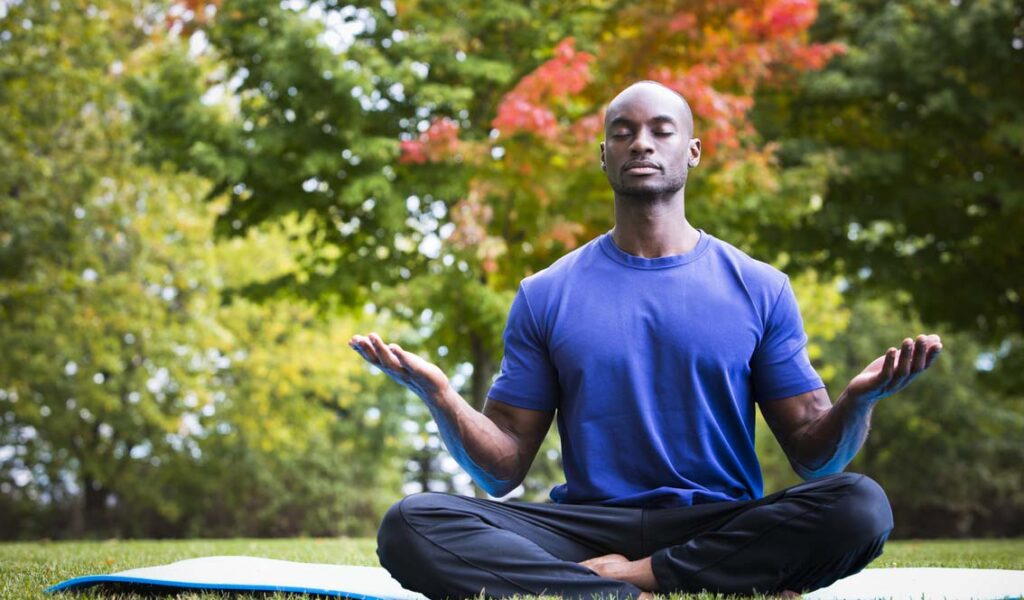Self-care is all about taking care of yourself to promote your overall well-being. It’s like regularly maintaining a car to keep it running smoothly. But instead of a car, it’s you!
This can involve things like healthy eating, exercise, enough sleep, and relaxation activities. It’s also about managing stress and setting boundaries.
Self-care is an essential practice for maintaining a healthy and balanced life. It encompasses a range of activities and habits that nurture various aspects of your well-being. It helps you be the best version of yourself, both physically and mentally. When you’re well-rested and feel good, you can better handle daily challenges, be more productive, and have stronger relationships.
By focusing on physical, mental, social, emotional, and spiritual self-care, you can create a comprehensive routine that supports your overall health. Here’s a detailed look at these five dimensions of self-care, with insights from field experts.
1. Physical Self-Care
Physical self-care involves activities that improve your physical health and fitness. This includes exercise, nutrition, sleep, and regular medical check-ups.
Exercise

Regular physical activity is crucial for maintaining a healthy body. Dr. John Ratey, a clinical professor of psychiatry at Harvard Medical School, states, “Exercise is the single best thing you can do for your brain in terms of mood, memory, and learning.”
Yogasana is a special form of exercise that not only benefits physical health but also improves mental health and spiritual well-being. Learn yoga asanas from an experienced yoga teacher and form a routine for a 15-30-minute daily practice (or at least 5 days a week).
Learn more:
30-minute Beginner’s Yoga Series
Nutrition
Eating a balanced diet rich in fruits, vegetables, lean proteins, and whole grains is vital. Registered dietitian Lisa Drayer emphasizes, “A healthy diet can improve energy levels, boost mood, and promote overall health.”

Sleep
Quality sleep is essential for physical recovery and mental health. Dr. Matthew Walker, a professor of neuroscience and psychology at the University of California, Berkeley, notes, “Sleep is the foundation of good health. It enhances your ability to think clearly, react quickly, and consolidate memories.”
You can utilize your yogasana practice to learn poses that promote sleep and its quality at night.
Learn more:
Yoga For Better Sleep: Poses, Types, Benefits, And More
Medical Check-ups
Regular visits to healthcare professionals for preventive screenings and check-ups ensure early detection and treatment of health issues.
2. Mental Self-Care
Mental self-care focuses on nurturing your mind and intellect. This includes activities that stimulate your brain and reduce stress.
Mindfulness and Meditation
Practicing mindfulness and meditation can significantly reduce stress and improve mental clarity. Jon Kabat-Zinn, a pioneer in mindfulness-based stress reduction, explains, “Mindfulness means paying attention in a particular way: on purpose, in the present moment, and non-judgmentally.”

You can also practice japa meditation to improve your mental strength.
Learn more:
What is Japa Meditation and What are its Unique Benefits?
Learning
Engaging in lifelong learning through reading, puzzles, or new hobbies keeps your mind sharp. Psychologist Dr. Carol Dweck’s research on the growth mindset suggests that embracing challenges and learning from failures enhances mental resilience.
Stress Management
Techniques such as deep breathing, yoga, and time management can help manage stress effectively. Dr. Herbert Benson, founder of the Benson-Henry Institute for Mind Body Medicine, highlights, “The relaxation response is a physical state of deep rest that changes the physical and emotional responses to stress.”
Social self-care involves building and maintaining healthy relationships and social interactions.
Connecting with Loved Ones
Spending time with friends and family strengthens bonds and provides emotional support. Dr. Julianne Holt-Lunstad, a professor of psychology, found that strong social connections are linked to a 50% increased likelihood of longevity.

You will be surprised to know that understanding your true self through a well-guided spiritual practice can help you in improving relationships, too.
Learn more:
Relationships and Spirituality: Benefits of Yoga in Social Health
Community Involvement
Participating in community activities and volunteering fosters a sense of belonging and purpose. Dr. Stephen Post, a professor of preventive medicine, states, “Helping others enhances social well-being and can lead to greater happiness and life satisfaction.”
Learn more:
Volunteering Benefits: Why Should You Take Part in Community Service?
Healthy Boundaries
Establishing boundaries is essential for protecting your time and energy. Dr. Henry Cloud, a clinical psychologist, explains, “Boundaries define us. They define what is me and what is not me.”
4. Emotional Self-Care
Emotional self-care involves recognizing, understanding, and managing your emotions.
Emotional Awareness
Being aware of your emotions and understanding their impact is crucial. Psychologist Dr. Daniel Goleman, author of “Emotional Intelligence,” emphasizes, “Self-awareness is the foundation of emotional intelligence.”
Expressing Emotions
Finding healthy ways to express your emotions, such as through journaling, art, or talking to a trusted friend, is vital. Brené Brown, a research professor, says, “Vulnerability is not winning or losing; it’s having the courage to show up and be seen when we have no control over the outcome.”

Seeking Support
Professional help from therapists or counselors can provide guidance and support in managing emotional challenges. Dr. Sue Johnson, a clinical psychologist, notes, “Therapy is not about fixing people; it’s about creating emotional balance and growth.”
5. Spiritual Self-Care
Spiritual self-care involves nurturing your soul and finding meaning and purpose in life.
Mindfulness Practices
Practices such as meditation, prayer, or spending time in nature can deepen your spiritual connection. Thich Nhat Hanh, a renowned Zen master, teaches, “Mindfulness helps you go home to the present. And every time you go there and recognize a condition of happiness that you have, happiness comes.”
Reflection
Taking time to reflect on your values and beliefs helps align your actions with your inner self. Eckhart Tolle, a spiritual teacher, states, “Your inner purpose is to awaken. It is as simple as that.”
Learn more:
Spiritual Benefits of Meditation: How Meditation Helps in Stress Relief
Community and Belonging
Engaging with spiritual or religious communities provides support and a sense of belonging. Dr. Harold Koenig, a psychiatrist and co-director of the Center for Spirituality, Theology, and Health at Duke University, highlights, “Spirituality can have a positive impact on both mental and physical health.”
De-Stress Well to Keep Your Self Care Intact
Here is an insightful video by revered Anandmurti Gurumaa Ji, who shares with us the timeless wisdom that helps us realize our true worth and enjoy living a healthy and stress-free life.
Conclusion
By integrating physical, mental, social, emotional, and spiritual self-care practices into your daily and weekly routines, you can create a balanced and fulfilling life. Each dimension of self-care is interconnected, contributing to your overall well-being. Remember to prioritize self-care as an essential part of your lifestyle, and consult field experts or resources to enhance your practice.
